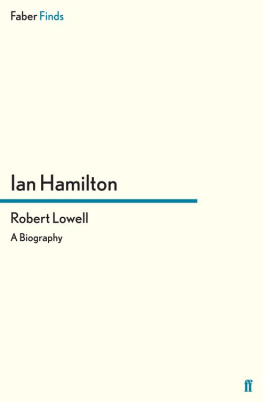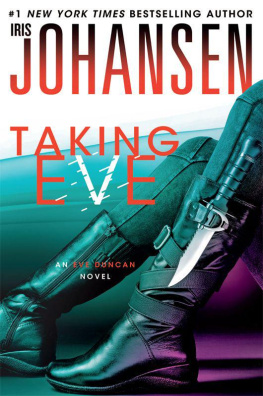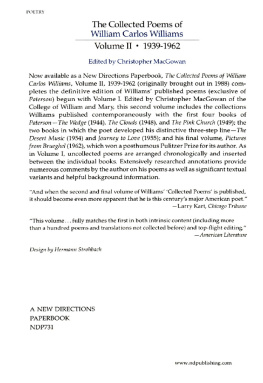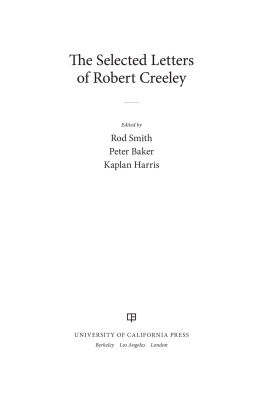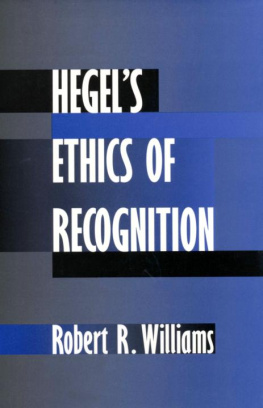Robert Duncan
The Ambassador from Venus
The publisher gratefully acknowledges the generous support of
the Humanities Endowment Fund of the University of
California Press Foundation.
The publisher also gratefully acknowledges the generous
support of Jamie Rosenthal Wolf, David Wolf, Rick Rosenthal,
and Nancy Stephens as members of the Publishers Circle of the
University of California Press Foundation.
Robert Duncan
THE AMBASSADOR FROM VENUS
A BIOGRAPHY
Lisa Jarnot
Foreword by Michael Davidson

University of California Press, one of the most distinguished university presses in the United States, enriches lives around the world by advancing scholarship in the humanities, social sciences, and natural sciences. Its activities are supported by the UC Press Foundation and by philanthropic contributions from individuals and institutions. For more information, visit www.ucpress.edu .
University of California Press
Berkeley and Los Angeles, California
University of California Press, Ltd.
London, England
2012 by The Regents of the University of California
For acknowledgment of previous publication, please see credits, .
Library of Congress Cataloging-in-Publication Data
Jarnot, Lisa, 1967
Robert Duncan, the Ambassador from Venus : a biography / Lisa Jarnot.
p. cm.
Includes bibliographical references and index.
ISBN 978-0-520-23416-1 (cloth. : alk. paper)
1. Duncan, Robert, 19191988. 2. Poets, American20th centuryBiography. 3. Modernism (Literature)United States. 4. San Francisco (Calif.)Intellectual life20th century. 5. Art and literatureUnited StatesHistory20th century. 6. Gay menUnited StatesBiography. I. Title.
PS3507.U629Z72 2012
811'.54dc23
[B]
2012015163
Manufactured in the United States of America
20 19 18 17 16 15 14 13 12 11
10 9 8 7 6 5 4 3 2 1
This book is printed on Natures Book, which contains 50% post-consumer waste and meets the minimum requirements of ANSI/NISO Z39.481992 (R 1997) (Permanence of Paper).
For Thomas
Harvey Brown recalls Olsons story of walking around and around the block near Duncans house before building up the courage to actually ring the bell. Well how would you feel, he asked Brown, if you were about to meet the Ambassador from Venus?
BOB CALLAHAN, introduction to The Correspondences:
Charles Olson and Carl Sauer
CONTENTS
Plates follow
by Michael Davidson
PART ONE
CHILDHOODS RETREAT
PART TWO
TOWARD THE SHAMAN
PART THREE
THE ENAMORD MAGE
PART FOUR
THE OPENING OF THE FIELD
PART FIVE
THE NASTY AESTHETICIAN
PART SIX
DOMESTIC SCENES
PART SEVEN
TROUBADOUR
PART EIGHT
THE MASTER OF RIME
FOREWORD
Michael Davidson
grand collage, I name It, having only the immediate event of words to speak for It.
ROBERT DUNCAN, Bending the Bow
Robert Duncans life offers a particular challenge for the biographer. He was a widely respected, if determinedly controversial, poet associated with the Black Mountain school, but his early career is marked by involvement in a number of significant literary communities. He participated in the Anas Nin and Henry Miller circle in the 1940s, the surrealist movement around View magazine during the same period, anarcho-pacifist political movements in New York and the Bay Area, and the Berkeley Renaissance of the late 1940s. He maintained close friendships with the objectivists, initially with Louis Zukofsky on the East Coast and then with George Oppen and Carl Rakosi in San Francisco. Although he retained his loyalty to Black Mountain peers, his oeuvrewhich includes ballads, childrens rhymes, masques, and imitations of Edith Sitwelloften seems at odds with the more self-consciously avant-garde work of his contemporaries. Following the success of his 1960 book, The Opening of the Field, and his powerful antiwar poems in Bending the Bow in 1968, Duncans reputation expanded internationally: his work was translated into many languages, and his publications extended to mainstream literary journals, academic conferences, and presses. Reading Duncans life under the narrow mantle of Black Mountain poetics misses the more erratic trajectory of his career and the eclectic nature of his poetics. Lisa Jarnots biography offers a useful corrective.
Such attitudes are components of the romantic imagination, to be sure, but Duncan lived the mythopoeic in ways that would have thoroughly perplexed Emerson or Stevens.
Duncans mythopoeic imaginary helped produce the vatic voice that reached its most profound articulation in A Poem Beginning with a Line by Pindar or the later Passages series, but it also gave him an impish permission to adopt multiple roles and postures. By regarding his life as story, he distanced himself from received traditions and codes of behavior, making it difficult for the literary genealogist to create a coherent narrative. He liked to refer to himself as a derivative poet who poached from anything he might be reading, whether it was an article in Scientific American or a linguistic textbook or the metaphysical poets. Notoriously eclectic in his readings, Duncan could chat as knowledgeably about the Oz books, E. Nesbit, and Krazy Kat as he could about Schopenhauer or Stravinsky (he had no difficulty talking about writers hed never read as well). His conversation was legendary for its brilliance and paratactic brio. He tended to suit his address to his interlocutor, and since, due to an ocular condition, he was unable to synchronize his vision, it was often difficult to tell which eye was looking at you and which was looking at something over your shoulder. When he became stimulated by the conversation and the rush of his own ideas, he often confused dates and personalities. I once invited him to give a lecture on Ezra Pound as modernist at which he proceeded to talk about aerial bombardment during World War II, the DNA code, his Jewish ancestry (he had none), his grandmothers life on the frontier, art glass, what is wrong with pop art, the Waite tarot deck, and various sexual experiences during the late 1940sall without mentioning Pound. If this was disconcerting for the audience, it was for me a brilliant demonstration of Pounds collage method. And if his seizure of talk was exasperating to the source-hunting student, it was also magical, carrying the listener along in a kind of verbal trance. Pounds logopoeia, the dance of the intellect among words, could not have been more vividly realized. Lisa Jarnot has patiently sorted out the facts from what Duncan, in a telling oxymoron, called his fictive certainties and has provided us with an invaluable base for reading his poems. At the same time, Jarnot respects the generative force of Duncans self-mythologizing and treats it as a crucial dimension of his poetics.
That poeticswhat Charles Olson called open field or projective verseis indebted to modernists like Pound and Williams and was forged among conversations with Duncans contemporaries: Olson, Robert Creeley, Denise Levertov, Robin Blaser, and Jack Spicer. We are fortunate that he lived at some distance from his peers, thereby necessitating extensive correspondence and providing the biographer with an invaluable record. Open form casts poetry as a participant in, not a container for, realms of value that lie obscured from view. Where Pound hoped to erect a dynastic edifice against social decay or Eliot sought an objective correlative against solipsism, Duncans peers emphasized the role of the body, perception, and cognition in re-engaging art with the human and natural world. Duncans favorite metaphor for this embodied relationship to that larger world is the childrens circle dance, which appears centrally in
Next page

